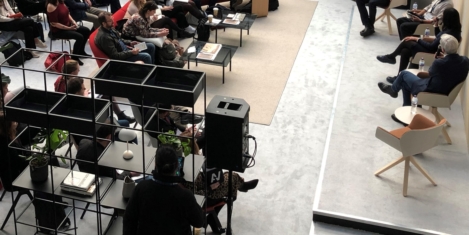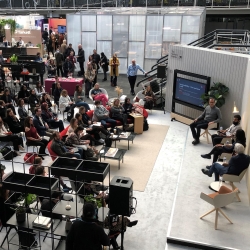To provide the best experiences, we use technologies like cookies to store and/or access device information. Consenting to these technologies will allow us to process data such as browsing behaviour or unique IDs on this site. Not consenting or withdrawing consent, may adversely affect certain features and functions.
The technical storage or access is strictly necessary for the legitimate purpose of enabling the use of a specific service explicitly requested by the subscriber or user, or for the sole purpose of carrying out the transmission of a communication over an electronic communications network.
The technical storage or access is necessary for the legitimate purpose of storing preferences that are not requested by the subscriber or user.
The technical storage or access that is used exclusively for statistical purposes.
The technical storage or access that is used exclusively for anonymous statistical purposes. Without a subpoena, voluntary compliance on the part of your Internet Service Provider, or additional records from a third party, information stored or retrieved for this purpose alone cannot usually be used to identify you.
The technical storage or access is required to create user profiles to send advertising, or to track the user on a website or across several websites for similar marketing purposes.
 The campaign group behind the UK’s four-day week trial is urging companies to try it out for themselves this August. The newly launched initiative, dubbed ‘4ugust’ (but of course) is a joint effort by the 4 Day Week Campaign and think tank Autonomy, with plans for it to become an annual event. Last month, the organisations released research findings based on their 2022 trial involving 3,000 workers. Around 90 percent of the 61 participating employers continue to operate on a four-day workweek. (more…)
The campaign group behind the UK’s four-day week trial is urging companies to try it out for themselves this August. The newly launched initiative, dubbed ‘4ugust’ (but of course) is a joint effort by the 4 Day Week Campaign and think tank Autonomy, with plans for it to become an annual event. Last month, the organisations released research findings based on their 2022 trial involving 3,000 workers. Around 90 percent of the 61 participating employers continue to operate on a four-day workweek. (more…)
































